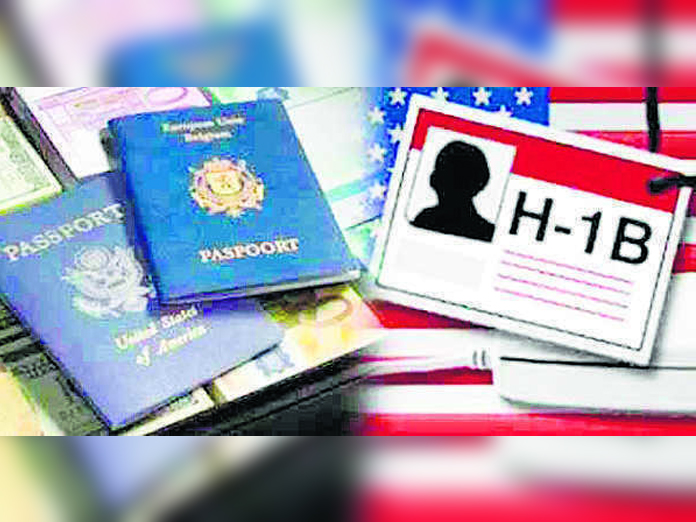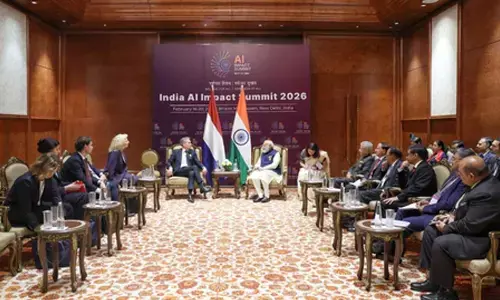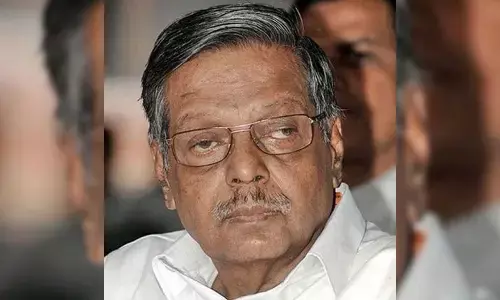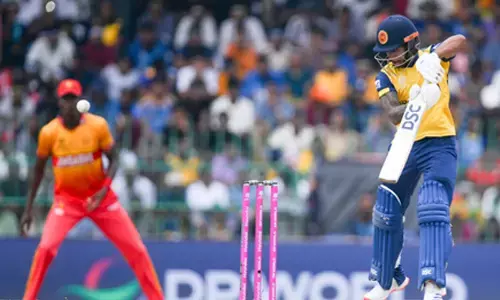US unveils new, efficient H-1B visa rules to attract best talent

As part of its effort to give greater chance to foreign workers who have received higher education from the US, the Trump administration on Wednesday formally announced a new rule related to the filing of H1B visas, asserting that it is more efficient, effective and helps in attracting best talent in the US
Washington:As part of its effort to give greater chance to foreign workers who have received higher education from the US, the Trump administration on Wednesday formally announced a new rule related to the filing of H-1B visas, asserting that it is more efficient, effective and helps in attracting best talent in the US.
The final rule reverses the order by which US Citizenship and Immigration Services (USCIS) selects H-1B petitions under the regular cap and the advanced degree exemption.
Among other things, it introduces an electronic registration requirement for petitioners seeking to file H-1B cap-subject petitions.
To be published in the Federal Register on Thursday, the new rule will go into effect on April 1, though the electronic registration requirement will be suspended for the fiscal year (FY) 2020 cap season, USCIS said.
"These simple and smart changes are a positive benefit for employers, the foreign workers they seek to employ, and the agency's adjudicators, helping the H-1B visa programme work better," said USCIS Director Francis Cissna.
Early this month, President Donald Trump said that he wants to bring in changes in the H-1B visa systems so that holders of these visas can stay in the country and accelerate their path to citizenship.
The H-1B visa, popular among Indian IT professionals, is a non-immigrant visa that allows US companies to employ foreign workers in speciality occupations that require theoretical or technical expertise.
The new registration system, once implemented, will lower overall costs for employers and increase government efficiency, he said.
Cissna said USCIS is also furthering Donald Trump's goal of improving the immigration system by making a simple adjustment to the H-1B cap selection process.
"As a result, US employers seeking to employ foreign workers with a US master’s or higher degree will have a greater chance of selection in the H-1B lottery in years of excess demand for new H-1B visas," Cissna said
Effective from April 1, USCIS will first select H-1B petitions (or registrations, once the registration requirement is implemented) submitted on behalf of all beneficiaries, including those that may be eligible for the advanced degree exemption.
Thereafter USCIS will select from the remaining eligible petitions, a number projected to reach the advanced degree exemption.
Changing the order in which USCIS counts these allocations will likely increase the number of petitions for beneficiaries with a master’s or higher degree from a US institution of higher education to be selected under the H-1B numerical allocations, a media statement said.
Specifically, the change will result in an estimated increase of up to 16 percent (or 5,340 workers) in the number of selected petitions for H-1B beneficiaries with a master’s degree or higher from a US institution of higher education.
USCIS will begin accepting H-1B cap petitions for fiscal 2020 on April 1, 2019. The reverse selection order will apply to petitions filed for the FY 2020 H-1B cap season.
Based on the feedback, USCIS said it has decided to suspend the electronic registration requirement for the fiscal 2020 cap season to complete user testing and ensure the system and process are fully functional.
Once implemented, the electronic registration requirement will require petitioners seeking to file H-1B cap petitions, including those that may be eligible for the advanced degree exemption, to first electronically register with USCIS during a designated registration period.
Only those whose registrations are selected will be eligible to file an H-1B cap-subject petition. USCIS expects that the electronic registration requirement, once implemented, will reduce overall costs for petitioners and create a more efficient and cost-effective H-1B cap petition process for USCIS and petitioners, according to an official statement.









